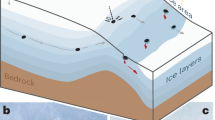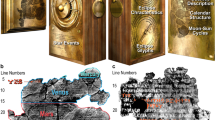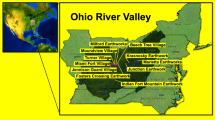Abstract
IT is generally stated that the remarkable meteorite fall near Pultusk, Poland, on January 30, 1868, consisted of 100,000 stones. Thus Charles P. Olivier in his monograph “Meteors”1 states that “the famous fall at Pultusk consisted of perhaps 100,000 fragments”. Also F. Heide cites in his book2 the same number, and places this fall as the highest with regard to number of fragments (in the second place comes the shower at Holbrook, Arizona, on July 19, 1912, with 14,000 fragments). The same number is quoted by various works on astronomy and cosmography.
This is a preview of subscription content, access via your institution
Access options
Subscribe to this journal
Receive 51 print issues and online access
$199.00 per year
only $3.90 per issue
Buy this article
- Purchase on Springer Link
- Instant access to full article PDF
Prices may be subject to local taxes which are calculated during checkout
Similar content being viewed by others
References
“Meteors” ( Baltimore, 1925).
“Kleine Meteoritenkunde” ( Berlin, 1934).
“Guide to the Collection of Meteorites” (Brit. Mus. (Nat. Hist.), 1926).
“Notice sur la météorite tombée le 30 Janvier 1868 aux environs de la ville de Pultusk” (Haute École de Varsovie).
“Kosmografja”, 2nd edition, by M. Ernst (Warsaw, 1907).
“Dzieje Ziemi”, vol. 1 (Warsaw, 1912).
Author information
Authors and Affiliations
Rights and permissions
About this article
Cite this article
STENZ, E. Number of Fragments of the Puftusk Meteorite. Nature 140, 113–114 (1937). https://doi.org/10.1038/140113b0
Issue Date:
DOI: https://doi.org/10.1038/140113b0
This article is cited by
Comments
By submitting a comment you agree to abide by our Terms and Community Guidelines. If you find something abusive or that does not comply with our terms or guidelines please flag it as inappropriate.



